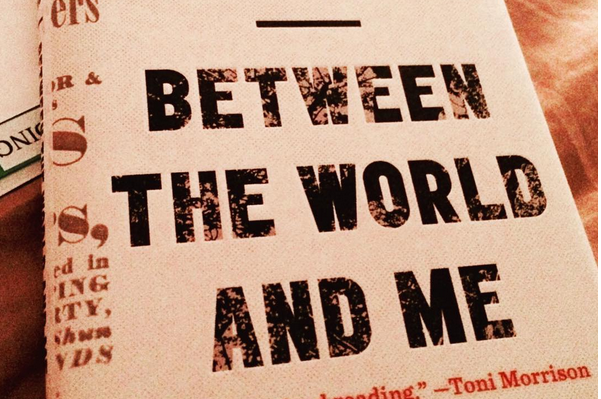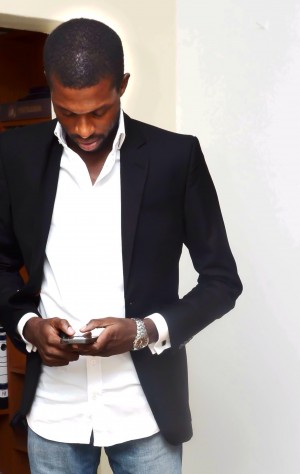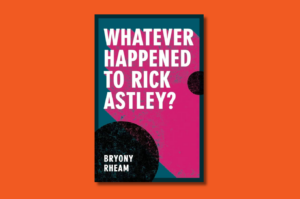 I began to show interest in this book based on its acclaimed literary merit. Some reviews laud it as an essential compendium to similar works by James Baldwin & Richard Wright on interrogating the black experience.
I began to show interest in this book based on its acclaimed literary merit. Some reviews laud it as an essential compendium to similar works by James Baldwin & Richard Wright on interrogating the black experience.
The book is particularly significant given recent events and conversations surrounding the issues of race. I admire Coates’ work. I read his column in the The Atlantic,—a body of writing which places him in a pantheon of contemporary public intellectuals—and queue up behind his Twitter updates.
Written as a letter to his son, Between the World and Me interrogates the African-American experience against white utopian ideals that continue to place black people at the receiving end of imperialist maltreatments.
It doesn’t pretend to be a nice chastisement or a patronizing contribution to the African-American plight. Perhaps, this is not a new exposé on being black in America, but it assumes a gnashing dissecting of the theme —the continued plundering —both physical and cosmic, of the black body, the siege around black progress, the starkness of black poverty and other social repulsions.
Perhaps, I’ve read more meaning into the work than Coates intended. I’ve mostly read this as an outsider, one who has never set foot in America. I tried to be as dispassionate as possible, but I failed. I struggled to come to terms with the feudal dynamics that keep a portion of humanity under centuries of regression or, if you may, stagnation.
From an African perspective, I could not ignore the semblance of black subjugation from Africa’s colonial experience; related in origin, differing in modern manifestations. One only needs to replace the context of white America with colonialist Africa to see veneers of similarities. Both dehumanize the African essence physically, psychological, economically, and—though this is not emphasized in the book—spiritually.
In the African context—and I must admit this may be a far stretch—the book reinforces some of the underlying implications of post-colonialism in which the colonized remains at the mercy of the colonizer in guises that aren’t as obvious as when the Europeans matched the continent with swords and gun powders.
The effects are still there: whereas it manifests in America through police institutions and tokenistic government policies, its African counterparts manifests in capitalist scheming that ignores African growth peculiarities and cohesions. Africa is far removed from colonialism, but she isn’t as far removed as we think. Trade aids, globalizations, and so forth, still seem like baits to maintain an imperialist order. They propagate a relationship of dependency of Africa on Western structures, amongst other imitations. (Of course, we may preach that it’s Africa’s choice to decide Africa’s destiny. But on a mission to decide this destiny, we really should not ignore this seemingly disguised post-colonial colonialism).
The book reads like a dirge of the “black body” as some sort of minimalist summation of black subjugation. Piercingly put, “Here is what I would like for you to know: In America, it is traditional to destroy the black body—it is heritage.” I’ve made a tweak: “Here’s what I would like Africans to know: In the world, it is tradition to dominate the black continent —it is custom.”
I’m not sure I, as an African resident in Africa, am part of the audience for Mr. Coates. In fact, I doubt whether the African-American audience is the book’s primary audience. Between the World and Me seems more like an engagement with the entirety of humanity.
Through his book, I’ve found in extensive detail the dynamics of living as a black person in America. It suggests a cosmic template designed to keep the black citizenry within predictable modes of progress and regression. Of course, some of these are evident from stories beamed from CNN and the Internet.
The more I read, the more I marveled at the other after-effect of racism, particularly on black parenthood. Being black parents in America is a curious affair. Although Coates admits to his son that there’s been some improvements, perhaps inconsequential, it still leaves one to marvel at how the American contract of raising black kids include an intimacy with fear. This is illustrated in the heartbreaking story of Dr. Jones, whose son, Prince Jones, driven by all the promises of a bright future and brought up in a decent home, still got gunned down, inside the same jeep his Mum had bought for him as present for his studiousness. Sad. Terrible. Fearful. (Effusive writers like Mr. Coates should not be trusted with reporting sad stories. Raw stories should be handled with tenderness).
One gets a sense that Coates is angry but consoles himself with knowledge of the racial insights he’s unearthed which has resulted in this important book. The lyricism of his prose, most forceful from chapter 2, confirms Coates genius of swinging words like a poet, crafting them for effect, remixing for resonance. The book is a note-taker’s delight. A hard copy could not have handled all the highlights I left on my e-book. It’s an unleashing from an irritated but cerebrally cautious poet. More than his knack for digging deep, Coates will be lauded for his ability to make the depressing familiar and engaging. How does one get over this:
But all our phrasing—race relations, racial chasm, racial justice, racial profiling, white privilege, even white supremacy—serves to obscure that racism is a visceral experience, that it dislodges brains, blocks airways, rips muscle, extracts organs, cracks bones, breaks teeth.
Or this:
…. America understands itself as God’s handiwork, but the black body is the clearest evidence that America is the work of men.
On the other side of the “black body” is “the Dream,” so deliberately capitalized to reinforce white paradisal ambitions and exclusivity. The American Dream, it turns out, is the white man’s dream.
With all his elucidations about the African-American reality, Mr. Coates revels in his primordial African heritage. Books show him that “we authored operas, pioneered secret algebra, erected ornate walls, pyramids, colossi, bridges, roads, and all the inventions that I then thought must qualify one’s lineage for the ranks of civilization.”
That must seem liberating and consoling since it suggests that a thorough knowledge of history imbues people with pride and a sense of worth necessary to navigate, competitively, the motions of engaging with outsiders.
This is telling and instructive. A people without knowledge and control of their history are, to an extent, vulnerable to ruthless external mischiefs.
But Coates doesn’t proffer a way forward. He made this an exploratory adventure. Or maybe by exposing these wounds, he expects an intervention, which in itself will be a step towards solutions.
For Africa too, hopefully.
**********
Post image by Wendee Lee Curtis via Instagram
About the Author:
 Chris Ogunlowo is a writer and an entrepreneur. He is a Creative Director & Principal Partner at Kwirkly, a creative agency in Lagos. When not day-dreaming about owning a dog, he updates chrisogunlowo.com
Chris Ogunlowo is a writer and an entrepreneur. He is a Creative Director & Principal Partner at Kwirkly, a creative agency in Lagos. When not day-dreaming about owning a dog, he updates chrisogunlowo.com









Chris Ogunlowo Reviews Between the World and Me by Ta-Nehisi Coates | Books LIVE October 06, 2015 02:23
[…] Complete review in Brittle Paper […]